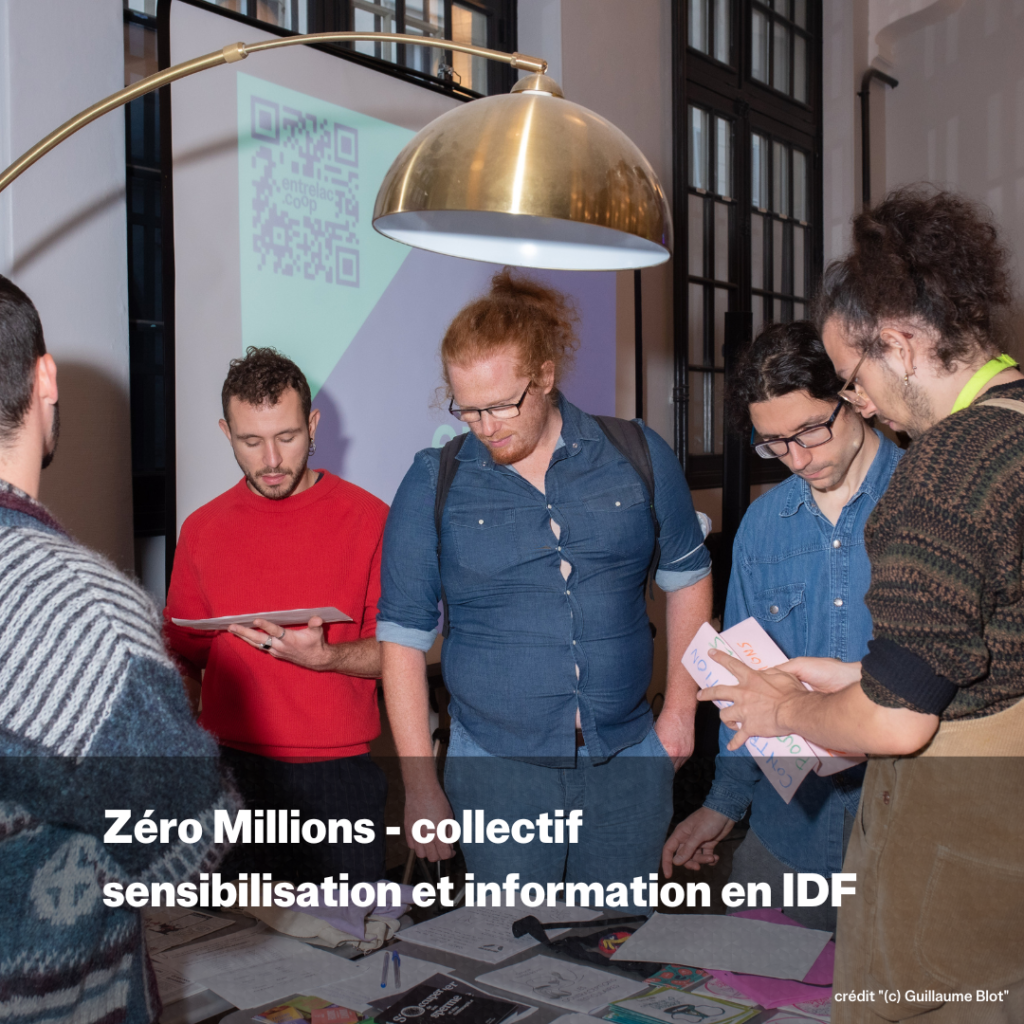
Bonjour, pourrais-tu te présenter ?
Je suis Manon Lacroix et j’habite Nantes depuis peu. Je suis médecin généraliste en fin de cursus et je prépare une thèse autour du vécu d’utilisateurs de la contraception dite masculine thermique que je soutiendrai courant 2023.
Je n’ai pas eu l’occasion d’accompagner beaucoup de patients pour de la contraception thermique, mais j’envisage de pouvoir le faire plus à l’avenir.
A Nantes, je suis en lien avec les G.O.N.A.D.E.S, un groupe qui anime notamment des espaces d’échanges autour de la contraception masculine et testiculaire et des ateliers de confection d’outils de contraception.
Comment t’es-tu intéressée à la contraception dite masculine ?
Je m’intéresse beaucoup à la santé reproductive depuis un moment, mais le sujet de la contraception masculine thermique m’est un peu tombé dessus par hasard.
J’avais quelques notions au sujet du slip “chauffant”, mais un jour, un patient est venu dans mon cabinet car il avait besoin d’un spermogramme pour faire son suivi de contraception. Quelques autres patients sont venus me voir pour les mêmes raisons. Ces demandes m’ont donné envie d’en savoir plus sur cette méthode et quand je m’y suis penché, j’ai constaté un manque important de données sur le sujet, notamment en termes de retours de patients utilisateurs et leur profil.
En tant que médecin, c’est toujours bien de pouvoir recommander des méthodes alternatives à des couples en impasse après avoir utilisé plusieurs contraceptions non satisfaisantes. Certains couples que j’ai rencontrés ont opté pour la méthode thermique mais j’ai eu peu de retours. Par contre, parler de contraception avec un homme en consultation de médecine générale n’est pas une évidence. Néanmoins, le fait d’en parler plus pourrait permettre de prescrire des méthodes adaptées dans certains cas et de répondre aux demandes.
La vasectomie, c’est plus facile à aborder, notamment avec des couples avec enfants et qui n’en souhaitent plus. L’opération est encore principalement pratiquée par des urologues, mais c’est techniquement assez simple en comparaison d’autres interventions à visée contraceptive et elle peut être pratiquée sous anesthésie locale. A Nantes, par exemple, elle est pratiquée par des médecins généralistes du Planning Familial.
Pour toi, quels sont les enjeux autour de la contraception masculine ?
La contraception masculine est parfois présentée comme un enjeu féministe.
En tant que militante féministe, je pense que l’accès à des moyens de contraception masculine peut répondre à certaines situations d’inéquité, mais ça n’est pas l’unique réponse, et ce serait un peu facile de la réduire à un simple enjeu féministe.
On pourrait très bien retourner la question complètement, et présenter la contraception masculine comme un moyen pour les hommes de (re)prendre le contrôle sur le corps de leurs compagnes, voire de se prémunir de femmes « perverses » qui veulent leur faire des enfants dans le dos… Ainsi il me semble réducteur d’en faire un enjeu purement « féministe » ou « masculiniste », chaque utilisateur ayant trouvé à l’origine de sa démarche des motivations personnelles et intimes.
En revanche, j’y vois un véritable enjeu de santé publique car la demande existe déjà. Je pars du principe que tout ce qui peut aider à mieux prendre en compte les besoins des patients et de les accompagner est bon à prendre. Le besoin en contraception évolue selon les personnes, leur corps, leur.s partenaire.s, mais aussi la temporalité dans lesquelles elles se trouvent, tout au long de la vie. Il est important qu’elles puissent avoir le choix d’utiliser une contraception adaptée et le cas échéant de la partager avec leur partenaire.
Et du coup, qu’est-ce qu’il faudrait pour que la contraception dite masculine se développe ?
Des financements ! On sait que la demande existe et la presse s’en fait le relais depuis des années. Par ailleurs, le nombre de vasectomies a été multiplié par 10 sur les 10 dernières années. Il faudrait trouver des moyens de financer l’industrie pharmaceutique qui pourrait alors promouvoir les études cliniques qui font défaut aujourd’hui et amener de nouveaux produits sur le marché.
Avec une nouvelle offre accessible et réglementée, j’imagine qu’on assisterait à l’émergence d’une nouvelle forme de demande, plus mixte et plus large, pour une contraception plus équitable et accessible à toutes et tous.
Merci à Manon pour sa contribution.
« Jusqu’en 2021, je ne connaissais aucune contraception masculine. »
Lorsque j’ai rencontré ma copine actuelle nous utilisions seulement le préservatif.
Elle a fait le choix de tester le stérilet au cuivre car les pilules et les hormones ne lui correspondaient pas.
Hormis pour le préservatif, nous n’avions pas eu de prévention présentant d’autres moyens au lycée et dans ma famille, on ne parlait que du préservatif et des pilules en général. Je pensais donc que les femmes prenaient la pilule et que les hommes prenaient un préservatif. Je ne pensais pas encore chercher un autre moyen de contraception pour ma part.

En octobre 2021, nous apprenons que le stérilet a glissé et que nous attendons un petit être.
Beaucoup de questions alors surgissent, est-ce que l’on est prêt ? est-ce que ma copine veut arrêter ses études ? est-ce que nous avons les moyens d’accueillir un enfant dans un cocon afin qu’il se développe et s’épanouisse ?
A tout cela nous avons répondu non.
C’est alors que l’avortement est l’élément déclencheur pour moi.
Cette intervention nous a bouleversé, je n’imaginais même pas toutes les questions que se posait ma copine et je me sentais impuissant.
J’ai décidé de chercher et tester l’anneau Andro-switch afin que cette charge mentale soit répartie dans notre couple. Un ami avait publié quelques semaines avant sur les réseaux sa démarche avec l’anneau. Je lui ai donc posé quelques questions à ce sujet. Il m’a même présenté quelques résultats de ses analyses.

Je me suis donc rendu chez mon médecin pour avoir une prescription de spermogramme et une ordonnance pour acheter l’anneau.
Je n’ai découvert qu’après qu’il était en vente sur le site officiel thoreme.com et je l’ai commandé directement. Je n’ai donc pas pu comparer avec les autres moyens de contraception masculine, mais il me convient très bien.
Nous avons donc aujourd’hui 2 contraceptions : stérilet aux hormones pour elle et anneau pour moi. Nous sommes en train d’analyser les spermogrammes pour peut-être libérer ma copine des hormones. On se rend compte que même les médecins sont un peu perdus lorsqu’on leur demande d’analyser les spermogrammes et de nous conseiller si une contraception est meilleure qu’une autre. C’est pour cela que l’on hésite encore à passer à une seule contraception dans notre couple.
Je n’ai ressenti aucun changement dans mon rapport à la masculinité.
L’inconvénient majeur est l’adaptation à la position haute des testicules. Cela a pris un bon mois pour être à l’aise dans toutes les positions, surtout la position assise et quelques mouvements quand je pratique mon sport. Les avantages sont multiples je trouve puisqu’on peut le retirer à tout moment en cas de gène, c’est un système mécanique et donc pas de changement hormonal à craindre. Cela m’a rapproché de ma copine, je pense aussi, c’est un moyen de montrer qu’on est à l’écoute et que l’homme peut très bien s’intéresser à la contraception à son niveau.
Par rapport aux autres, je reçois beaucoup de questions, bienveillantes en général, et malheureusement, ces questions viennent beaucoup des femmes. C’est pour cela que j’essaye de communiquer au maximum sur les réseaux à ce sujet et de sensibiliser les hommes au moins pour les informer. »
Merci à Cyril pour son témoignage et son engagement pour Entrelac.coop !
« Bonjour Alan, est-ce qu’on se tutoie ou vouvoie ?
On se tutoie, bien sûr.
Peux-tu te présenter ?
Alan Charissou, médecin généraliste exerçant en planification familiale depuis un peu plus de 10 ans, pleinement concerné par la contraception dans ma vie de couple et furieusement concerné par la contraception dans ma vie de papa d’adolescente.
Sinon, j’assure, au sein de la coopérative Entrelac.coop, la coordination médicale des projets visant à développer l’accès à la contraception masculine en Europe francophone.


Pourquoi la contraception masculine ?
Parce que 90% des femmes vont expérimenter au moins une fois dans leur vie une grossesse non programmée (GNP) ; parce que chaque année en France, c’est 370’000 femmes qui vont subir 100% des conséquences corporelles, professionnelles et sociales d’une grossesse non programmée.
Et que pendant ce temps, les hommes n’assurent que 12% de la charge contraceptive des couples en France. Même pas 2% des hommes français réalisent une vasectomie, contre 8% chez les belges ou plus de 20% chez les anglais.
Bref, c’est à la fois un problème de santé publique majeur – dont l’impact sanitaire passe totalement sous les radars de la santé publique malheureusement – mais aussi parce que c’est le théâtre d’une inégalité entre les femmes et les hommes des plus scandaleuses.
A ton avis, qu’est-ce qu’il manque aujourd’hui pour que ça se développe ?
10 millions d’euros sur 10 ans, soit moins de 3€ par femme victime d’une grossesse non programmée sur la même période… Ca laisse à réfléchir sur l’impact économique potentiel de toute nouvelle méthode de contraception en termes de réduction de coûts pour l’assurance maladie (une grossesse non programmée coûte bien plus que 3€ à la « sécu »…) et que dire en terme de santé de la femme, de partage de charge mentale, d’équilibre au sein des couples… Donc de l’argent avant tout.
Pour le reste, les études montrent que la société est prête et que 2-3 méthodes sont déjà très prometteuses. Ah… j’oubliais, il manque quand même une petite dose de courage politique… qui fait cruellement défaut malgré l’engagement politique de ces dernières années pour la réduction des inégalités entre les femmes et les hommes.
Qu’est-ce qu’une initiative comme Entrelac.coop peut apporter selon toi ?
Pour moi, Entrelac.Coop, c’est l’outil qui a le plus de chance de fédérer l’ensemble des forces capable de :
- Soulever des fonds pour la recherche,
- Mettre en réseau les chercheurs compétents sur le sujet dans l’Europe francophone,
- Susciter l’engagement de la classe politique dans le développement des contraceptions masculines.
Voilà tout ce que j’attends de toi mon cher Antoine ! »
Merci à Alan pour cet entretien et son investissement.


« Anouck,
Je porte un anneau de contraception masculine parce que c’est facile.
Ça ne me fait pas mal, ça ne me gène pas et ça me rend infertile, c’est réversible et ça ne coûte pas cher. Ma seule contrainte, ce sont les spermogrammes réguliers à faire.
Quand je compare cette méthode aux galères de la contraception féminine je suis ébranlé, sans jeu de mot 🙂 D’entendre la violence de tes récits de ta pose de stérilet, des effets secondaires de la pilule, du temps passé chez la gynéco, je trouve ça injuste pour toi. C’est normal en connaissance de tout ça de prendre en charge la contraception dans notre couple.
Je ne veux pas que tu aies mal pour quelque chose qui nous concerne tous les deux. Je ne veux pas qu’en plus des règles tu aies du cuivre à l’intérieur, des médocs, alors que je peux simplement porter 10 grammes de silicone sur ma bite.
Antoine »




Nous sommes déjà 100 à soutenir activement Entrelac.coop. Merci à tous les sociétaires qui font vivre la coopérative ! Retour sur une année d’aventures :
En 2021, nous suivions déjà le projet de Maxime Labrit et son Andro-switch, un anneau thermique testiculaire. Alors qu’il discutait avec l’ANSM pour la distribution hors marquage CE, l’idée d’Entrelac.coop commençait à émerger.
En décembre, l’ANSM suspend la distribution de l’Andro-switch. Nous décidons alors d’aider Maxime à le remettre sur le marché durablement en l’accompagnant dans sa certification.
Face à l’ampleur du travail, nous avons choisi une démarche collective. Cette dynamique a permis à d’autres projets de contraception masculine de bénéficier du même accompagnement, contribuant ainsi à l’équité contraceptive.
En mars, plus de 100 personnes ont assisté à nos réunions. Parmi elles, 20 se sont mobilisées pour créer la coopérative (statuts, identité visuelle, site web, plaidoyer), officialisée en juin.
Aujourd’hui, Entrelac.coop compte 100 sociétaires, et nous sommes convaincus que ce groupe grandissant aura un impact fort sur les pratiques contraceptives.


Quelle meilleure date que la Journée Mondiale de la Contraception pour réaffirmer le besoin urgent d’équité contraceptive ?
Le 26 septembre, nous étions plus de 100 personnes, sociétaires. amie.es, curieux.ses à nous réunir pour fêter la création d’Entrelac.coop.
La Cité Audacieuse, tiers-lieu parisien dédié au féminisme, a co-organisé l’événement et prêté son hall pour la soirée. Un grand Merci à Solène, Philippine et à Anne-Cécile sans qui cet événement n’aurait jamais eu lieu !
Nous étions accompagnés de Pierre Colin et Philippe Lapôtre, cofondateurs d’ARDECOM, Bobika, auteur de la BD « Le Cœur des Zobs », le collectif Zéro Millions Anne-Sophie Delcour, autrice de la BD « L’homme sous pilule » et Guillaume Blot, photo-journaliste qui a produit la série « Parti Intime ».




Recevez la newsletter Entrelac.blog